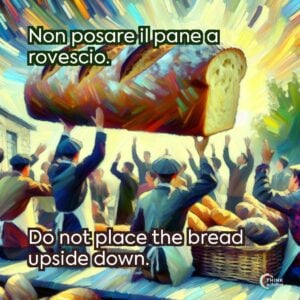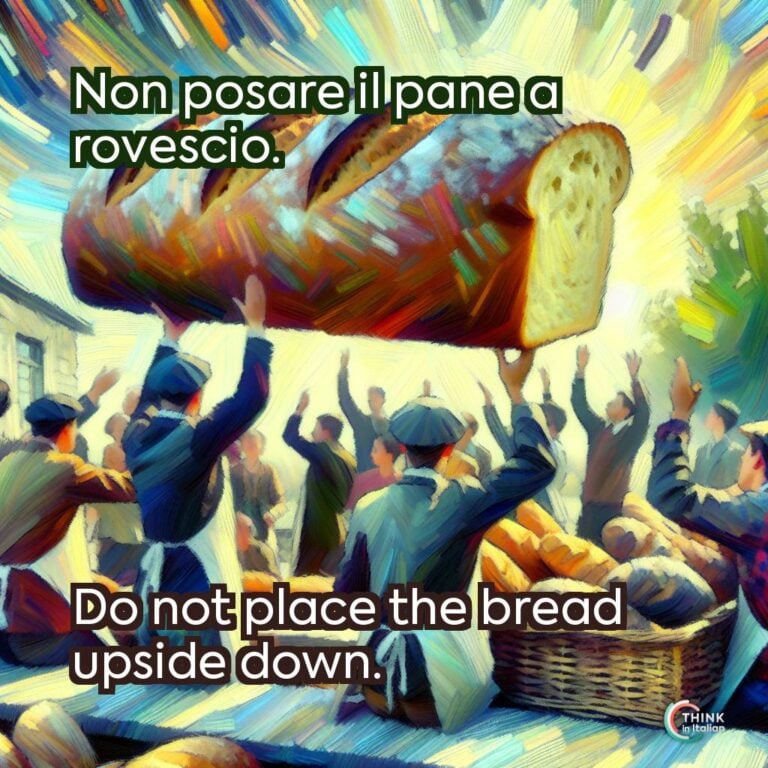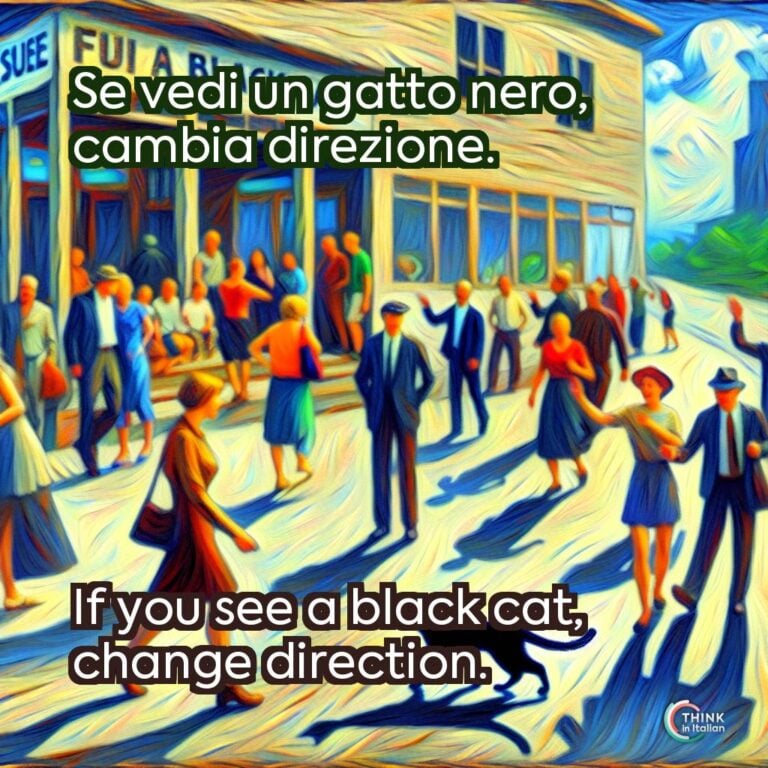What Are Italian Superstitions?
Italy, renowned for its rich history, vibrant culture, and world-famous cuisine, is also home to a variety of deep-rooted superstitions that reveal much about the Italian way of life.
Whether mystical or practical, Italian superstitions are a window into the customs and mindset of Italians and Italian society. They include a range of beliefs and practices that have been passed down through generations.
However, they are not uniform across the country: northern Italy, influenced by Alpine and Central European traditions, has different beliefs compared to southern regions like Sicily, where customs have Arab and Greek roots.
Symbolism and Protective Measures
The Evil Eye and Rituals
The belief in the malocchio (evil eye) is pervasive in Italy. This curse stems from envy or jealousy and is said to bring bad luck.
To ward off its effects, Italians may use specific symbols or practice protective rituals like making the mano cornuta (hand gesture resembling horns). In more elaborate cases, older family members may perform incantations passed down through generations.
The Horn-Shaped Amulet
Central to many Italian superstitions are protective symbols and rituals. The corno, a horn-shaped amulet made of red coral, gold, or silver, is widely recognized as a charm to ward off the malocchio (evil eye).
This amulet, which resembles a chili pepper, is particularly popular in southern Italy. Touching or showing this talisman is believed to repel envy and misfortune.
If you have an Italian friend, ask them whether they have or ever had a corno as a key chain. At least 70% of Italians, including myself, had it at least once in their life.
The Power of Touching Iron
While many cultures touch wood for good luck, Italians often touch iron to ward off misfortune. The gesture of toccare ferro (to touch iron) is especially common when discussing negative possibilities.
Italian Superstitions
Superstitions Related to Numbers and Dates
- The Number 17
Unlike the Western fear of the number 13, Italians avoid 17 due to its association with death. This belief stems from its Roman numeral form, XVII. If rearranged, it spells VIXI, meaning “I have lived”, therefore signifying that now I am dead.
- Friday the 17th
Combining the superstition around 17 with the Christian belief that Friday was the day of Jesus’ crucifixion, Friday the 17th is considered a particularly unlucky day. Some Italians might take extra precautions on this day to avoid misfortune.
Superstitions Related to Food
- The Significance of bread
Bread holds a sacred status in Italian households, symbolizing life and nourishment. Placing a loaf upside down is considered disrespectful and a symbol of bad luck, stemming from religious associations where bread represents the body of Christ.
- Spilled salt
Spilling salt is seen as a bad gesture, a belief that dates back to times when salt was highly valuable. To counteract the misfortune, Italians throw a pinch of the spilled salt over their left shoulder to blind the devil lurking behind them.
- Eating lentils for wealth
On New Year’s Eve, many Italians serve lentils which symbolize wealth and prosperity for the upcoming year. The small, coin-shaped legumes are believed to attract financial fortune.
Superstitions Related to Marriage
- The wedding dress
It is considered bad luck for the groom to see the bride in her wedding dress before the ceremony. Many Italian brides take great care to keep their dresses hidden until the wedding day.
- Catching the bouquet
A fun tradition of Italian weddings is when women gather behind the bride’s shoulders and the bride throws her bouquet. The common belief is that the single woman who catches the bride’s bouquet will be the next to marry.
- Avoiding Tuesday and Friday weddings
There are two specific days of the week that are considered unlucky days for weddings: martedì (Tuesday) and venerdì (Friday).
The first is linked to Italian mythology, as it is associated to Mars, the god of war. The second is considered a day of fasting and penance for Christians.
Superstitions Related to Animals
- The black cat
Seeing a black cat cross your path is regarded as a bad omen in Italy. This belief traces back to medieval beliefs that linked black cats to symbols of misfortune. Now, some Italians may even change their route to avoid the perceived bad luck.
What I find interesting about these beliefs is the legend behind them: this one states that, since there was no lighting system back then, if a cat crossed the street, it was very likely to be run over.
- Birds entering the house
I personally did not know this one, but apparently a bird flying into the home is seen as an ominous sign, often believed to foretell death. Italians take great care to prevent this from happening.
Get rid of Misfortune
Italian superstitions, rich in history and full of symbolic meaning, still shape the culture and traditions of Italy. They may seem quirky or puzzling to outsiders, but they hold deep significance for us, acting as a bridge between past and present.
Whether you’re visiting Italy or simply curious about its culture, understanding these superstitions provides valuable insight into what makes the country’s heritage so fascinating.
Respecting these beliefs is essential, but it’s also important to recognize that, at their core, they are just that: superstitions. They add color and depth to life without needing to limit one’s potential or choices.






